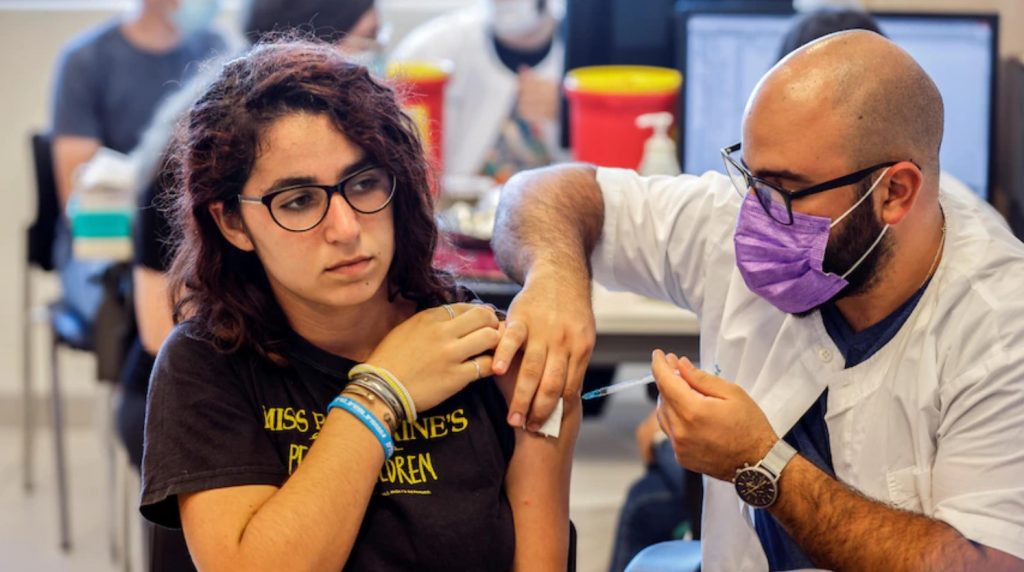
Protection against infection from a fourth Pfizer vaccine dose wanes to zero in just eight weeks, an Israeli study published in the NEJM has found.
The researchers looked at the records of all 1,252,331 people over 60 in Israel eligible for the fourth dose during the Omicron wave (January 10th to March 2nd 2022). They excluded various groups, including those with prior test-positive Covid to avoid confounding with natural immunity.
They compared infection rates and severe cases in the four-dose group to the three-dose group, and also to an “internal control” in the form of the four-dose group in the first week after the jab (excluding the first two days). They provided estimates of rate ratios (a measure of vaccine effectiveness) adjusted for age, sex, demographic group, and calendar day (to take into account the varying prevalence over the epidemic wave).
They found that although some fleeting protection against infection appeared to occur, it peaked two to three weeks after the injection (blue dots in the chart below) and was gone by the eighth week.
The adjusted rate of infection in the eighth week after the fourth dose was very similar to those in the control groups; the rate ratio for the three-dose group as compared with the four-dose group was 1.1 (95% CI, 1.0 to 1.2), and the rate ratio for the internal control group as compared with the four-dose group was only 1.0 (95% CI, 0.9 to 1.1).

Note that the apparent reduced risk in the first two days after the jab the researchers put down to “transient biases” such as people not getting vaccinated if unwell.
Enhanced protection against severe illness, on the other hand, persisted for the six weeks of the study (red dots above), the researchers observe. However, they sound a note of caution, pointing out that the effectiveness of earlier doses was found to wane quickly. A CDC study found that two doses were only 38% effective against hospitalisation with Omicron after six months, while another study found vaccine effectiveness against emergency department admission with Omicron waned to 41% with two doses after six months and to 48% with three doses after three months.
It’s worth noting that the four dose group in the Israeli study appears to be healthier than the three dose group, which means the vaccine effectiveness against severe disease in the chart above will be overestimated. Compared to the four dose group, the three dose group had 3.5 times the adjusted risk of severe Covid whereas the internal control group (i.e., the four dose group in its first week post-jab) had just 2.3 times the adjusted risk of severe Covid. This is a version of the healthy vaccinee effect, and means the vaccine effectiveness against severe disease above will be overestimated as it does not adjust for it.
It’s also worth noting that the raw (unadjusted) reported infection rate was higher in the internal control group than in the three-dose group (388 vs 361 per 100,000 person-days), which means the four-dose group experienced higher than average infection rate in the week after the jab (a phenomenon noted in many contexts previously). This means many of the susceptible may have been infected at that point, creating a survivorship bias in the four-dose group that lowers its infection rate and artificially increases reported vaccine effectiveness.
The study confirms that additional vaccine doses do little to nothing to reduce infection risk. They appear to have a positive impact on serious disease, though the follow-up time is too short to know how quickly this wanes. There is no reason, however, to think it will differ much from earlier doses, where it dropped to around 40% within six months.
